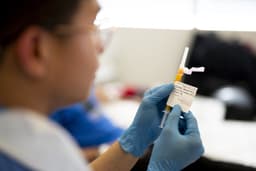Home / Health / Cervical Cancer Elimination: KGMU's Three-Pronged Attack
Cervical Cancer Elimination: KGMU's Three-Pronged Attack
18 Nov
Summary
- KGMU adopts WHO's strategy: vaccination, screening, and treatment.
- HPV vaccination is offered at government hospitals for ₹500.
- Screening is crucial for women aged 25-65, ideally every five years.

King George's Medical University (KGMU) in India is implementing a comprehensive strategy to eradicate cervical cancer by 2030, aligning with a global commitment. The initiative focuses on three key pillars: vaccination against the Human Papillomavirus (HPV), rigorous screening, and effective treatment.
The HPV vaccine, crucial for girls aged 9 to 14, is available at government facilities for ₹500, a stark contrast to market prices. This vaccination is a cornerstone in preventing the primary cause of cervical cancer. Alongside vaccination, KGMU emphasizes screening for women between 25 and 65 years old. Early detection is vital, with recommendations for screenings every five years, or at minimum, twice between the ages of 35 and 45.
Early detection through screening allows for the identification of precancerous stages, often treatable with less invasive procedures, avoiding the need for hysterectomy. For those diagnosed with cervical cancer, treatment options are tailored to the stage. Early-stage detection may involve surgery, while advanced cases require radiation therapy and chemotherapy. KGMU aims to prevent the disease or ensure diagnosis at treatable stages.

